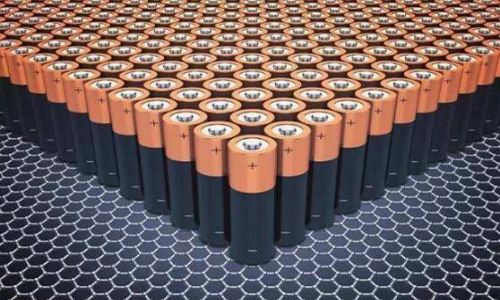Cost of Lithium-ion Batteries for Electric Vehicles – Cost and Battery Performance
Mar 25, 2020 Pageview:1740
A battery is considered the heart of an electric car because just as in its name, the vehicle solely depends on power outsourced from the battery to function. Many electric car drivers tend to be ignorant of the details or statistics revolving around the battery price while other concerned members of the club seem confused. Apart from the common raw materials used in the manufacture of the battery, it is crucial for you to understand how lithium-ion batteries function in these vehicles. This will enable you to get a better understanding of the overall cost and performance of the cells.
Characteristics of a Lithium-ion EV battery
Most of the electric vehicles manufactured in the world make use of lithium-ion batteries in their systems. This is because lithium-ion batteries offer some of the best requirement that an electric car demand. They provide large energy densities that are capable of sustaining the car for extended distances before needing a recharge. Also, the batteries lack the memory effect that their traditional predecessors suffered from and this allows them to undergo many cycles without malfunctioning. Also, because of their higher performance as compared to other battery technologies, lithium-ion batteries require very little to no maintenance making them suitable for road-trips.
Functioning
Lithium-ion batteries tend to function under the principle in which lithium ions are traded between the two electrodes, anode and cathode. These electrodes are usually made from cobalt and graphite with the exchange of lithium ions taking place through a liquid electrolyte. A typical lithium battery for electric vehicles is made up of several cells that are unanimously managed by a Battery Management System, BMS. The lithium-ion battery is therefore, the ideal solution for electric vehicles because they carry the right functional properties compatible to the EV requirements.
How much do lithium-ion batteries for electric vehicles cost?
The price of a lithium-ion battery for electric vehicles usually varies depending on a number of factors. Some of these factors include:
1.Raw materials
Different battery manufacturers use different concentrations of raw materials. However, one should be aware that the way normal lithium-ion batteries for conventional use, are manufactured entirely different from those of electric vehicles. for this reason, there are a number of materials such as cobalt, which is required in the production and is very expensive. For example, a battery that contains a capacity of about 90kWh can count a high amount of cobalt.
Also, mining of lithium has grown expensive over the years and even though more mines are being exploited, there is a rise in the conversion of fossil-driven vehicles to electric ones. This has increased the demand for lithium used in the construction of these batteries and it ultimately raises the price of the final product. Raw materials play a major role in determining the price of an electric car battery.
2.Capacity
Please understand that the bigger the battery doesn’t necessarily mean the better your choice. However, battery manufacturers for electric vehicles can at times manipulate the capacity of the cell to carry more or less power. Sometimes, a battery with a higher capacity may be worth more than one with less as long as the two come from the same brand. This is because brands are rated different and their products are also priced differently.
One can find that a battery from a specific brand costs more than another even though it may have a much lower capacity. Therefore, as much as capacity also determines the price of a lithium-ion electric car battery, it can at times, vary.
3.Quality and brand
Just as mentioned in the above paragraph, the quality and brand of the electric car battery also determines the price of the lithium-ion battery. There are usually set standards for lithium-ion batteries designed for electric cars and which battery manufacturers are expected to adhere to. As such, there are brands that are considered better than others due to the quality of their products and popularity among EV owners. This is one of the major reasons for the differences in the prices of lithium-ion batteries for EV.
4.Life cycle
How long do you want your EV lithium-ion battery to sustain your vehicle? Normally, the battery life of an EV cells can manipulate its prices. You will find out that there are lithium-ion batteries which supply large amounts of power during use but tend to last a time before they need to be replaced. There are also those that tend to supply low amounts of power per usage but can go up to 10 years with zero maintenance needed. Is it advisable to settle for a price that comes with a warranty because anything unexpected can happen and you might need a plan B.
5.Mileage
How far would you like your battery to last before it needs a recharge? This requires a battery that has a bigger capacity and can support more charge cycles.
The price of an automotive lithium-ion battery falls at around 150$ - 250$ per kilowatt hour.
What battery performance is needed for electric vehicles?
Electric vehicles require specific characteristics for their batteries. Some of these features include:
1.A higher energy-density output to sustain the vehicle for longer mileages.
2.A larger capacity to hold more power for extended distances.
3.Little to no maintenance for the batteries required.
4.Should be able to handle a high range of temperature because the cars are usually driven in many environments.
5.Should be light enough to reduce the overall weight of the vehicle.
Where can you buy lithium-ion batteries for electric vehicles with a high-cost performance?
To get efficient lithium-ion batteries for electric vehicles with a high-cost performance, you can’t walk into a mall, or hardware store and pick out any battery you want. You will firstly, need to understand the requirements of your electric car concerning the battery. You would then proceed to an automation store for vehicles where you will be advised on the best pick. Also, you can visit the warehouse from which you purchased the vehicles for assistance. Avoid ordering EV batteries online as they could be faulty or unsuitable for your car.
Final words
Even though the initial price of an electric car can, at times, be higher than that of a fossil-fueled vehicle, it can cost half as much to run and maintain. The electric motor doesn’t need an oil change, filter cleaning, spark plug replacement nor a new timing belt. The energy costs of an EV are much more of a delight as compared to motor engines.
Leave Message
Hottest Categories
-
Hottest Industry News
-
Latest Industry News












